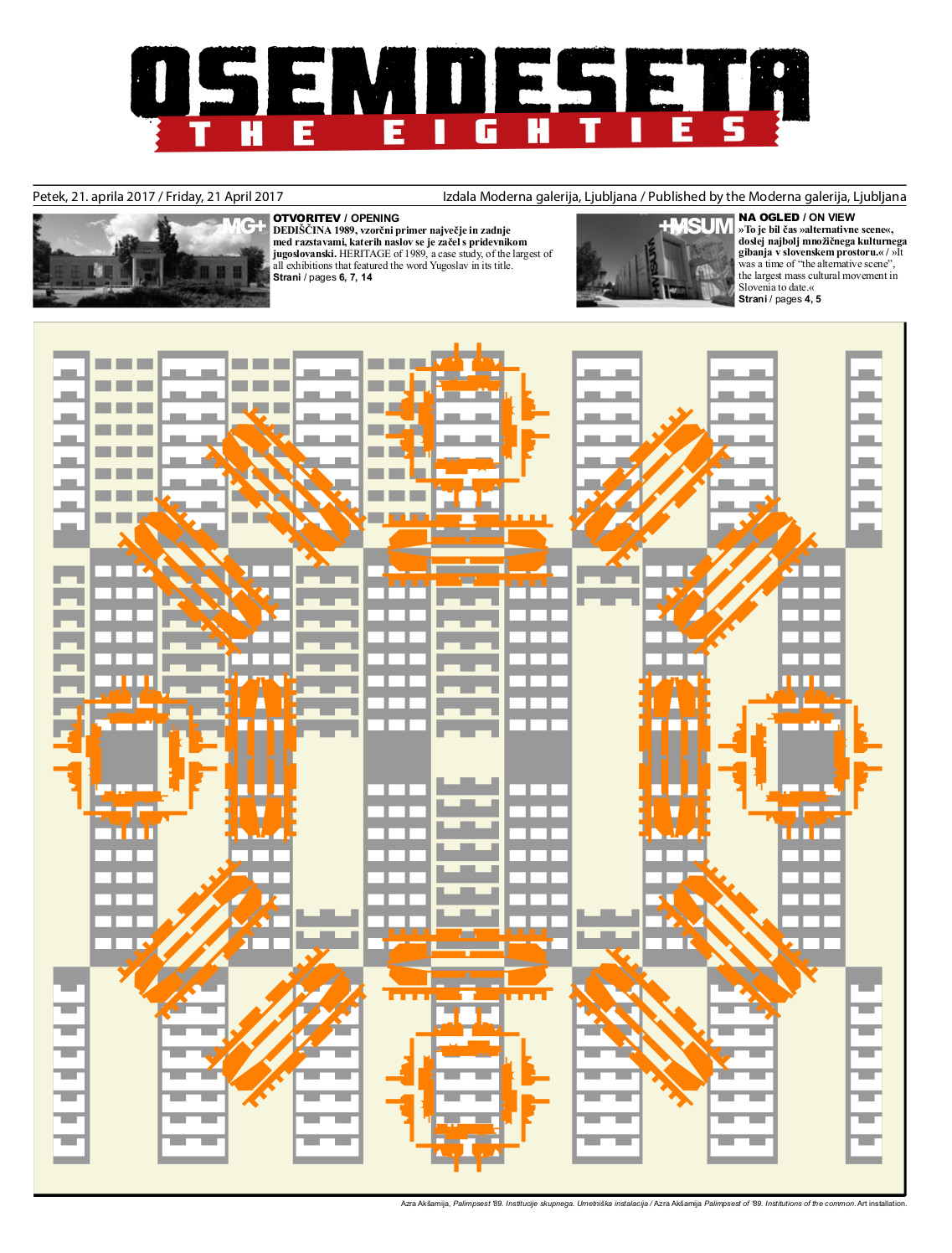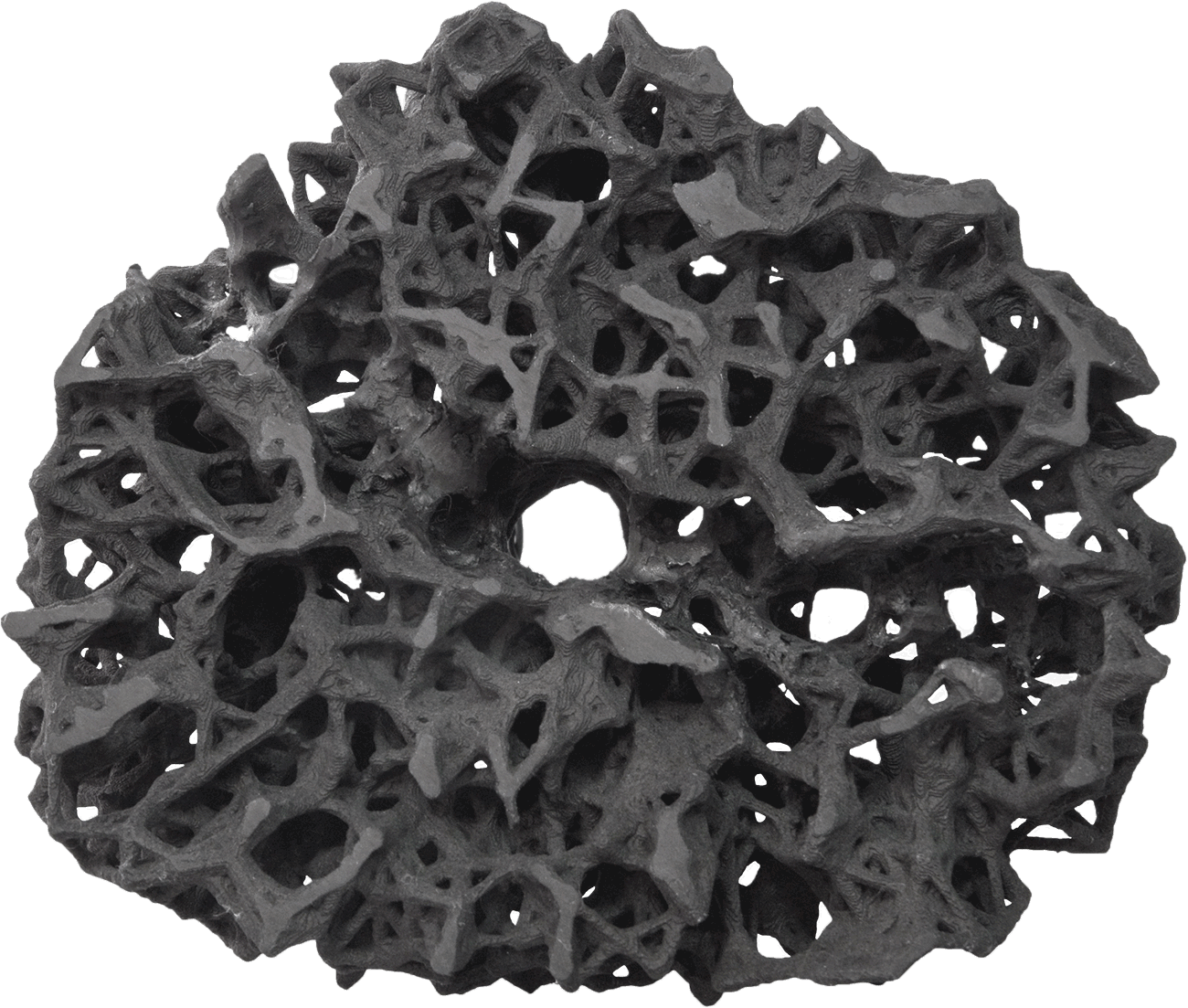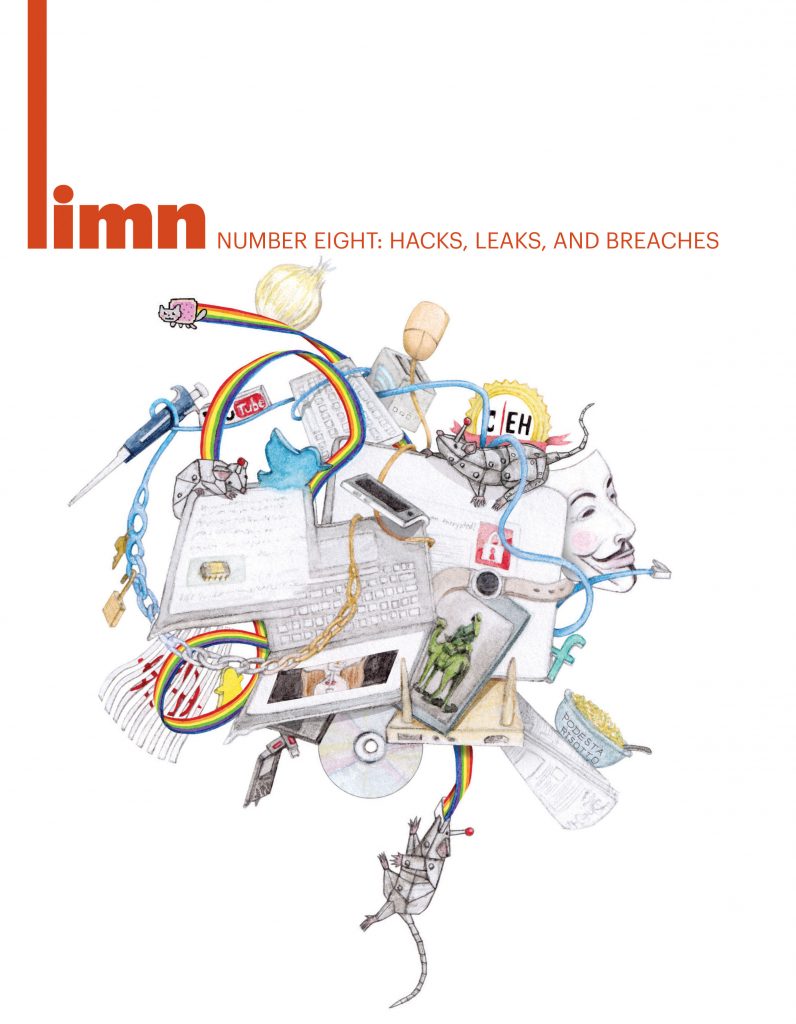Osemdesata / The Eighties (2017) [Slovenian/English]
Filed under booklet, magazine | Tags: · 1980s, art, art history, yugoslavia

A magazine and booklet for a trilogy of exhibitions focusing on the 1980s and their legacy organized by Moderna galerija in Ljubljana.
Edited by Adela Železnik and Ana Mizerit
Publisher Moderna galerija, Ljubljana, 2017
Open access
24 & 80 pages
via MG+MSUM
Magazine (8 MB)
Booklet: The Heritage of 1989. Case Study: The Second Yugoslav Documents Exhibition (14 MB)
See also The 1980s: Today’s Beginnings? An Alternative View on the 80s (2016).
Comment (0)Technosphere Magazine (2016-2019)
Filed under dossier, magazine | Tags: · anthropocene, anthropotechnics, creolization, earth, environment, human, infrastructure, technology, technosphere, theory

“Exploring the amorphous fabric of technologies, environments, and humans shaping Earth’s critical future.
The technosphere is the defining matrix and main driver behind the ongoing transition of this planet into the new geological epoch of humankind, the Anthropocene. Stemming from the ubiquity of human culture and global technologies, it forms a new and highly dynamic component of the Earth system, amorphous in its gestalt yet powerful in altering the history of this planet and the conditions for life on it. Mobilizing and transforming massive amounts of materials and energy, it is comparable in scale and function to other terrestrial spheres such as the bio- and hydrosphere, with which it connects and intersects. Put differently, it constitutes a form of a higher ecology generated by the cumulative interweaving of technologies and natural environments to the point where both become inseparable.
Manifest since at least the mid-twentieth century with the onset of the “Great Acceleration,” the technosphere has now reached an enormous, not yet determinate potential to alter the surface of the Earth as well as its great depths – from the orbital level to the deep sea. Owing to the capability of a single species to actuate technics that radically transform our planet, the technosphere thus represents a steep rupture and a qualitative shift in the way our planet has functioned for millions of years. How does the technosphere operate? How does it reorganize and re-functionalize the physicality and chemistry of living and non-living matter? And how does it change the ways we perceive the world?”
“Technosphere Magazine maps out specific dimensions, condensations, aggregations, “apparatuses,” problematics, conflict zones, ruptures, and operational failures, through and by which the technosphere becomes visible.” (from Editorial)
Editors-in-chief: Katrin Klingan, Christoph Rosol
Editorial team: Anujah Fernando, Ana María Guzmán Olmos, Nick Houde, Anna Luhn, Christoph Rosol, Johanna Schindler, Mira Witte
Illustrations: Nina Jäger
Publisher Haus der Kulturen der Welt (HKW), Berlin, 2016-2019
Open access
HTML
Dossiers: Anthropotechnics, Arctic, Borders, Creolized Technologies, Earth, Human, Infrastructure, Land & Sea, Machine Listening, Materials, Metabolic Systems, Phosphorus, Risk Equipment, Spheres, Substances, Trauma, Trust (HTML, updated on 2019-5-30)
Limn, 8: Hacks, Leaks, and Breaches (2017)
Filed under magazine | Tags: · activism, hacking, hacktivism, information warfare, leaking, politics, security

“Hardly a day passes without news of a major hack, leak, or breach; with the scale of computer use and reliance on digital forms of data, no sector of society is immune to these data dumps, infiltrations, and floods. From the surveillance of dissidents to the hacking of elections to the weaponization of memes, hacking is changing in character, and it is changing the world. In this issue we ask whether hacking and hacks have crossed a techno-political threshold: how are hacks, leaks and breaches transforming our world, creating new collectives, and changing our understanding of security and politics. How has the relationship of hacking and hackers to their own collectives, to governments, and to the tools and techniques been transformed recently? What does it mean to be a hacker these days, and how does it differ from engineering, from “cyber-security,” from information warfare or from hacktivism?”
Contributors: Claudio Guanieri, Nils Gilman, Jesse Goldhammer, Steve Weber, Finn Brunton, Matthew Jones, Molly Sauter, Rebecca Slayton, Matthew Goerzen, Adam Fish, Luca Follis, Mustafa Al-Bassam, Sarah Tochetti, Paula Bialski, E. Gabriella Coleman, Robert Tynes, Philip Di Salvo, Sarah Myers West, Ashley Gorham, Joan Donovan, Goetz Bachmann, Tor Ekeland, David Murakami-Wood, Kim Zetter. With science fiction by Cory Doctorow.
Edited by E. Gabriella Coleman and Christopher M. Kelty
Published Feb-Mar 2017
Creative Commons BY-SA 3.0 Unported License
HTML (updated on 2019-7-8)
Comment (0)
